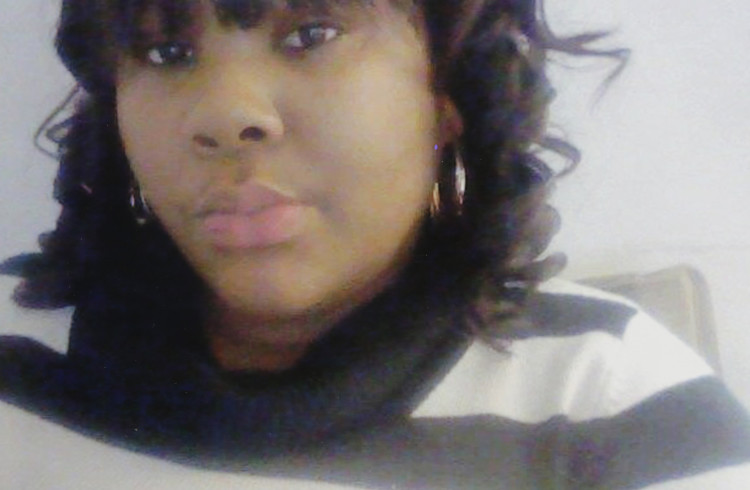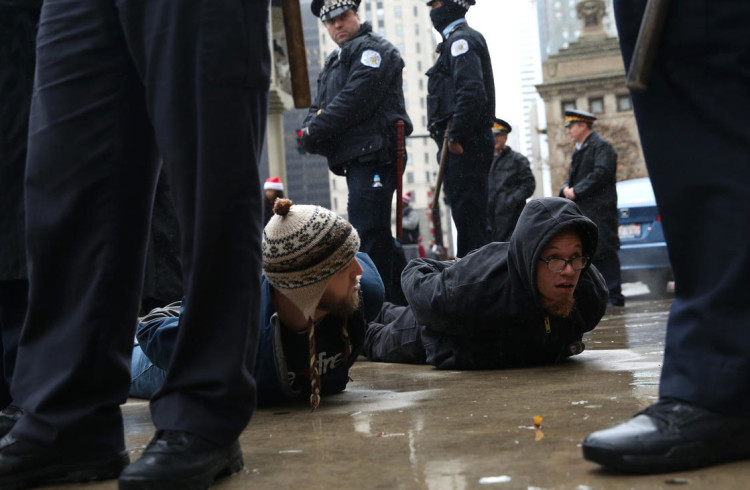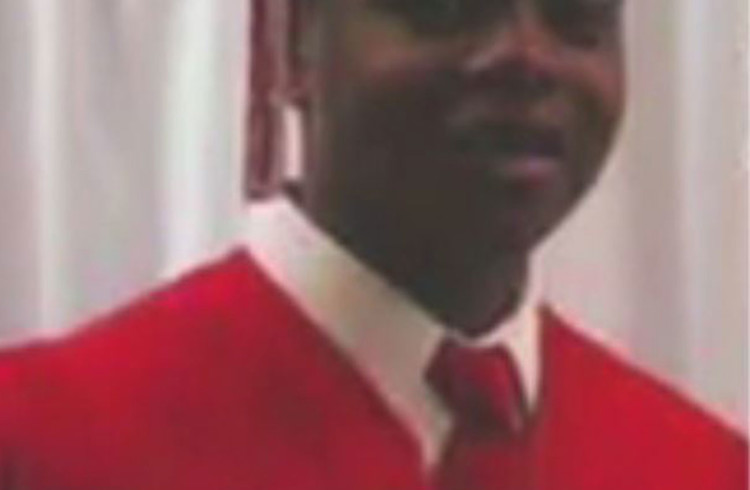To protest is to interrupt. As John Perkins Fellows at Northern Seminary, part of what we have learned during our education is that inconvenient interruptions are often a prelude to justice and peace. So, in true John Perkins and “Coach” Wayne Gordon fashion, this past (Black) Friday we participated in a protest that intentionally interrupted traffic, shopping, and news cycles in order to bring people’s attention to issues in Chicago. And we were arrested for doing so.
Walter Brueggemann is right when he says that most Christians are willing to die for Christ but they don’t want to be inconvenienced for him. For people with jobs and classes and busy schedules, it is a major inconvenience to be arrested, but our desire to avoid inconveniences has dissipated under the influence of our neighbors and our churches.
What issues? Well our march was partially about the #16Shots that executed Laquan McDonald. But it was about 400 years of oppression since the slave trade began that coincides with the 400 days it took for an obvious charge of murder to be hung around the executioner’s neck. This was about the cover up, including 86 minutes of deleted footage from the local Burger King, running through the hands of States Attorney Anita Alvarez, Police Superintendent Garry McCarthy, and Mayor Rahm Emanuel. This was about the creation of ghettos in Chicago neighborhoods like North Lawndale, Englewood, and Austin. It was about Jon Burge torturing confessions from black suspects. It was about the groundbreaking work of people like Mariame Kaba and Project NIA, and the We Charge Genocide report to the United Nations about police brutality in Chicago. It was about Rekia Boyd’s murderer walking free. It was about the neighborhood’s knowing response of “they’ve been locking up black people there for years,” when The Guardian revealed that the police station in nearby Homan Square was a black site used to “disappear” thousands of people. It was about the complete divestment of economic opportunities, as millions of jobs have disappeared from neighborhoods of color in Chicago alone. It was about shuttering public schools in minority neighborhoods, and the mayor ignoring a 34-day hunger strike to try to save a neighborhood school. It was about the conditions of poverty, oppression, violence, and trauma experienced and then expressed by so many of our youth today, as Chicago’s shooting incidents (2,724 YTD) and murders (436 YTD) climb through the roof. It was about more than just Laquan.

We participated in demonstrations on Tuesday immediately following the release of the video that shows Laquan being murdered, but we were arrested on Black Friday when we shut down shopping on the Magnificent Mile in an effort to bring attention to all of the above. We saw that the police were herding protesters into one lane of traffic so that transit was not seriously inconvenienced. Since the purpose of protest is to disrupt, we were not interested in coloring inside police lines. Our act of defiance wasn’t as poetic or beautiful as Bree Newsome, but blocking traffic with our bodies surely disrupted something. As the arresting officers told us they had to “set the tone” for these protests, they put us face-down in the freezing puddles. After three hours in handcuffs and another two in Cell Block C, we were released with a misdemeanor of obstructing traffic and a December court date. Thankfully the police ignored the other 2000 people who quickly flooded the oncoming lane a few minutes after we were “detained.” It was a small price to pay for being the first through the wall.
If someone was too look at our actions in Chicago this past Friday and deem them as radical they wouldn’t be wrong. My (Josiah) sitting under the tutelage of Miss Kimmy Payne for the past two years has resulted in my radicalization. Miss Kimmy is a long time neighborhood resident, a business owner, church leader and the first person at church to congratulate me on getting arrested. After reading Michelle Alexander’s book The New Jim Crow, I (Ben) spoke with Cliff Nellis, lead attorney at the Lawndale Christian Legal Center, and asked what someone without a law degree could do to help fight injustice. He introduced me to James, a kid I would go on to mentor. His stories, and those from other kids in my neighborhood, shook me to my core. When the city was boiling earlier this week, I jokingly asked Cliff if he would defend me in a hypothetical arrest. He responded by text: “Problem is we’ll all be looking at each other in the same cell.”
The real life stories of people like Rekia, Laquan and James require deep reflection and a commitment to action. All over the U.S. (but especially in Chicago) kids as young as twelve are being labeled “a menace to society” simply because they are trying to scrape by with no parents and no money. Does hearing their stories really make us radical? Bernie Sanders has become fond of saying, “it isn’t a radical idea…,” and it is hard for us to identify as radical when we just want to “love God and love our neighbors.”
But the truth is, at this current moment in the city of Chicago, demanding justice and peace for the oppressed is viewed as a radical stance. Well Jesus was a radical then it seems. Some try to domesticate Jesus to the point that he weirdly never has anything to say about justice and peace for the oppressed. It is largely thanks to Christena Cleveland, that we have come to believe that Jesus—God in the flesh—not only unequivocally sides with the oppressed, but insists that to know justice is to know peace, and where there is no justice there will be no peace (Jer. 6:14, 22:14-17; Mic. 6:8).
The word “radical” has been used pejoratively when describing the Black Lives Matter (BLM) movement. Our conservative Christians friends and our Christian pacifists friends have criticized the movement for being too vitriolic or not focused enough on reconciliation. Oddly enough, those same friends have conveniently steered clear of interacting with people from our neighborhood, earnestly engaging with BLM activists, or showing up to any of the protests to actually see that we are primarily concerned with “loving and protecting one another.” If this describes you, we are compelled to tell you that it is difficult to take your criticism seriously and it is impossible for BLM activists or friends in our neighborhood to listen to you when you remain aloof and absent. Not only is this arrogant, but it is also cowardly. So we invite you to let go of preconceived notions and fear; come learn from the people who are teaching us so much.
While we believe Jesus would have willingly participated in Chicago’s Black Friday protest against capitalism, white supremacy and other systems of oppression that the BLM movement is deconstructing, we are deeply convinced that he would’ve done it nonviolently. So when we blocked traffic on Friday, we allowed the officers to arrest us and we even verbally blessed them.
BREAKING: Arrests are happening on Chicago's Magnificent Mile, as protesters march following the release of video showing the shooting death of Laquan McDonald… https://abc7.ws/1ImAx81
Posted by ABC 7 Chicago on Friday, November 27, 2015
Being a Christian pacifist is not synonymous with being a pushover. Being a Christian pacifist is about following Jesus’ example of disrupting the powers and principalities. Whether it’s blocking the entrance of the temple with his body (Mk. 11:15-16) or disobeying the Roman Empire by busting out of the tomb and breaking the official seal of Caesar, Jesus was a perpetrator of civil disobedience (Mt. 27:66, 28:2)! And by doing all of this, Christ disrupted and made a spectacle of the powers and principalities (Col 2:15).
This Black Friday in Chicago, protestors followed Jesus’ example by making a spectacle of the powers and principalities by nonviolently preventing people from entering the “temples” of the Magnificent Mile shopping district. The response to that act demonstrated how capitalism shapes people’s desires so much that outrage over the murders of Rekia Boyd and Laquan McDonald become afterthoughts in comparison to the itch for a good bargain. As our professor Dr. Bob Price says, “There’s something ack-bassward about that.” What seems equally “ack-bassward” and embarrassing is that it took all of five minutes for the CPD to arrest us for a misdemeanor of “obstructing traffic” but it took them well over a year to call Laquan’s murderer to account.
Today all that is left is some bruised wrists and outstanding homework. But we’re glad to be alive. Freddie Gray didn’t even make it to the police station. Sandra Bland made it there, but didn’t make it out. I (Ben) have invited a few neighbors to march, but universally, the response is “Y’all [white people] can go march all you want, but I don’t feel like getting beat up by a cop in riot gear.” I’m much safer marching because I am white, I’m much safer getting arrested than most of the kids in my neighborhood, and the fear of dying in a jail never crossed my mind. But my neighbors voices need to be heard, and their stories serve as thousands of witnesses against the credibility of police reports. They were who I was marching for; the same people who helped me shovel snow this week, the same people who radicalized me, the same people who were mad as hell, but didn’t feel safe participating in a demonstration wherein peace and justice were demanded for Chicago’s most vulnerable.
Losing Laquan and Rekia et al is a tragedy. Being arrested is inconvenient. Chicago’s corrupt “leadership” is discouraging. The violence in our neighborhood never seems to stop. Tracing the ways in which America’s original sin of racism systemically marginalizes black and brown people in our community is overwhelming. But we take heart in a popular chant the BLM movement borrowed from a Kendrick Lamar rap song; the chant resembles the prayer of Julian of Norwich. With this chant-prayer we hope you will also take heart and act for liberation:
do you hear me, do you feel me? we gon’ be alright
______________________________________________________________________
*Dedicated to those who never made it out of custody*
Ben Swihart is an M.Div. student and John Perkins Fellow at Northern Seminary, Chicago. He and his wife live in the North Lawndale neighborhood, on Chicago’s West Side. His interests involve contextual and political theologies, community development both internationally and domestic, learning from his neighbors, and the World Champion Kansas City Royals.
Josiah R. Daniels is an M.Div. student and John Perkins Fellow at Northern Seminary in the Chicago area. He lives on the West Side of Chicago in the North Lawndale neighborhood. His primary interests are urban community development, contextual theologies, political theology, and Old Testament theology. He blogs at Restoring Pangea.



Missio Alliance Comment Policy
The Missio Alliance Writing Collectives exist as a ministry of writing to resource theological practitioners for mission. From our Leading Voices to our regular Writing Team and those invited to publish with us as Community Voices, we are creating a space for thoughtful engagement of critical issues and questions facing the North American Church in God’s mission. This sort of thoughtful engagement is something that we seek to engender not only in our publishing, but in conversations that unfold as a result in the comment section of our articles.
Unfortunately, because of the relational distance introduced by online communication, “thoughtful engagement” and “comment sections” seldom go hand in hand. At the same time, censorship of comments by those who disagree with points made by authors, whose anger or limited perspective taints their words, or who simply feel the need to express their own opinion on a topic without any meaningful engagement with the article or comment in question can mask an important window into the true state of Christian discourse. As such, Missio Alliance sets forth the following suggestions for those who wish to engage in conversation around our writing:
1. Seek to understand the author’s intent.
If you disagree with something the an author said, consider framing your response as, “I hear you as saying _________. Am I understanding you correctly? If so, here’s why I disagree. _____________.
2. Seek to make your own voice heard.
We deeply desire and value the voice and perspective of our readers. However you may react to an article we publish or a fellow commenter, we encourage you to set forth that reaction is the most constructive way possible. Use your voice and perspective to move conversation forward rather than shut it down.
3. Share your story.
One of our favorite tenants is that “an enemy is someone whose story we haven’t heard.” Very often disagreements and rants are the result of people talking past rather than to one another. Everyone’s perspective is intimately bound up with their own stories – their contexts and experiences. We encourage you to couch your comments in whatever aspect of your own story might help others understand where you are coming from.
In view of those suggestions for shaping conversation on our site and in an effort to curate a hospitable space of open conversation, Missio Alliance may delete comments and/or ban users who show no regard for constructive engagement, especially those whose comments are easily construed as trolling, threatening, or abusive.